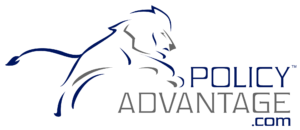Understanding the Affordable Care Act’s Shared Responsibility Provisions
The Affordable Care Act (ACA) introduced a variety of measures to increase access to affordable health insurance for Americans. Among these, the “Shared Responsibility Provisions,” commonly referred to as the “employer mandate,” have become a cornerstone of compliance for businesses. This blog will explore the history of the provisions, what they entail, how they can be navigated, and how PolicyAdvantage.com supports employers in meeting these requirements.
The History of the Employer Mandate
The ACA was signed into law in 2010 to reform the U.S. healthcare system. One of its key components was to increase employer participation in providing health coverage. Recognizing that large employers play a significant role in the health insurance landscape, the employer mandate was phased in beginning in 2015 for larger employers and gradually extended to smaller businesses meeting specific thresholds. This provision was designed to ensure that employees of qualifying businesses would have access to affordable health insurance options.
What Are the Shared Responsibility Provisions?
The employer mandate requires Applicable Large Employers (ALEs), defined as businesses with 50 or more full-time equivalent employees, to offer health insurance that meets specific affordability and minimum value standards. If an ALE does not comply, it may face penalties. These penalties can arise in two primary scenarios: when an employer fails to offer coverage to at least 95% of full-time employees or when the offered coverage is deemed unaffordable or does not meet minimum value standards.
Navigating Compliance Challenges
Navigating the employer mandate can be complex due to the intricacies of defining employee eligibility, ensuring coverage meets ACA standards, and completing the required IRS reporting. Employers must carefully track hours to determine full-time status, analyze their health plan offerings, and file accurate documentation such as Forms 1094-C and 1095-C. Non-compliance, whether intentional or accidental, can result in significant financial penalties and administrative burdens.
Using the Shared Responsibility Provisions as a Competitive Advantage
Rather than viewing the Shared Responsibility Provisions as a burden, companies can leverage them as a source of competitive advantage. By offering high-quality, ACA-compliant health insurance, businesses can position themselves as attractive employers in a competitive labor market. Robust health benefits are increasingly seen as a key factor in talent recruitment and retention, enabling businesses to stand out to prospective employees. Additionally, demonstrating a commitment to employee well-being can enhance a company’s reputation, foster loyalty, and improve workplace morale. Proactively aligning health benefits with ACA standards can also mitigate compliance risks and build trust with stakeholders, creating a solid foundation for long-term growth.
How PolicyAdvantage.com Can Help
PolicyAdvantage.com is well-equipped to guide businesses through the challenges of ACA compliance. With expertise in the health insurance industry and strategic partnerships, the agency provides employers with the tools and support they need to simplify their compliance journey.
One of the ways PolicyAdvantage.com assists employers is through partnerships with leading HR technology companies. These platforms offer advanced solutions to automate time tracking, ensure benefits eligibility calculations, and streamline ACA reporting. By integrating these tools, employers can reduce administrative strain, minimize errors, and focus on core business operations.
Additionally, PolicyAdvantage.com offers tailored consultations to help businesses design health insurance offerings that align with ACA standards while meeting employee needs. With a deep understanding of the regulatory landscape, the agency helps employers avoid penalties and achieve long-term compliance.
Conclusion
The ACA’s Shared Responsibility Provisions are a critical consideration for businesses classified as Applicable Large Employers. While navigating these requirements can be daunting, PolicyAdvantage.com provides the expertise and resources necessary to ensure compliance. By reframing these provisions as an opportunity rather than a challenge, businesses can gain a competitive edge in the marketplace. Through strategic partnerships and personalized support, employers can manage their responsibilities effectively and confidently. For more information on how PolicyAdvantage.com can assist your business, contact us today.


